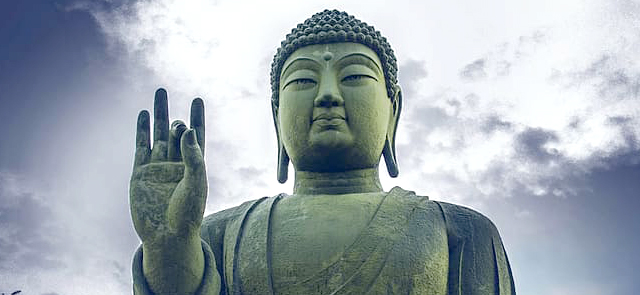In the vast expanse of spiritual teachings, the figure of Buddha stands as a symbol of enlightenment, compassion, and inner peace. The teachings of Buddha have echoed through centuries, guiding countless individuals on a path towards understanding and self-realization. Yet, amidst the myriad interpretations and expressions of Buddhism, there is a fundamental truth often overlooked: Buddha resides not in our eloquent words but in the depths of our hearts and actions.
The phrase "Buddha in our heart, not in our mouth" encapsulates a profound concept that transcends mere verbal recitations of Buddhist scriptures. It speaks to the essence of embodying the principles of Buddhism rather than merely professing them outwardly. In essence, it underscores the importance of living in alignment with the core values espoused by Buddha, rather than merely paying lip service to them.
At its core, Buddhism is not a dogma to be preached but a way of life to be lived. The teachings of Buddha emphasize mindfulness, compassion, and the cultivation of wisdom. However, true understanding arises not from intellectual comprehension alone but from the direct experience and application of these principles in our daily lives.
In a world inundated with noise and distraction, it's easy to get caught up in the superficialities of religious or spiritual affiliation. Many may recite Buddhist prayers or mantras without truly internalizing their meaning or reflecting upon their significance. However, the essence of Buddha's teachings lies in their practical application, in how they shape our interactions with ourselves, others, and the world around us.
Central to the concept of "Buddha in our heart" is the cultivation of inner transformation. It involves delving deep into our own consciousness, confronting our fears, desires, and attachments, and transcending the ego-driven patterns that perpetuate suffering. This inner journey requires sincerity, introspection, and a willingness to embrace both the light and shadow aspects of our being.
Moreover, embodying Buddha entails extending compassion and kindness towards all sentient beings. It involves actively alleviating the suffering of others and contributing to the well-being of society as a whole. Rather than merely professing benevolent intentions, it requires tangible acts of generosity, empathy, and service that uplift and empower those in need.
In contrast, the notion of "Buddha not in our mouth" highlights the futility of empty rhetoric divorced from genuine inner transformation. Merely reciting Buddhist scriptures or engaging in religious rituals without heartfelt conviction and understanding serves little purpose beyond superficial adornment. True spiritual growth arises from the depth of our sincerity and the authenticity of our actions, not from the eloquence of our speech or the external trappings of religious observance.
Furthermore, the dichotomy between "mouth" and "heart" underscores the importance of aligning our words with our intentions and actions. It calls attention to the hypocrisy inherent in espousing noble ideals while behaving in ways that contradict them. The true measure of our spiritual maturity lies not in the fluency of our speech but in the integrity of our character and the consistency of our conduct.
In essence, "Buddha in our heart, not in our mouth" serves as a powerful reminder of the essence of Buddhist teachings. It urges us to transcend the superficialities of religious formalism and delve into the depths of our own being. It encourages us to embody the virtues of mindfulness, compassion, and wisdom in our thoughts, words, and deeds. Ultimately, it beckons us to walk the path of enlightenment with sincerity, humility, and unwavering resolve, knowing that the true essence of Buddha resides within the sanctum of our own hearts.







